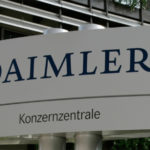Euro continued trading on lower levels against the US dollar on Friday, following the release of good data, regarding producer prices in the United States and in expectation of the consumer confidence report by University of Michigan.
EUR/USD fell to a session low at 1.3019 at 13:00 GMT, after which consolidation followed at 1.3042. Support was likely to be found at July 2nd low, 1.2965, while resistance was to be met at July 11th high, 1.3147.
Minutes ago it was reported that Producer Price Index (PPI) in the United States unexpectedly rose in June, marking the strongest climb in nine months, supported by prices of energy. PPI increased by 0.8% in June on a monthly basis, exceeding preliminary estimates of a 0.5% rise. This increase was a result of higher energy prices (2.9% increase), and increased gasoline costs, respectively. In annual terms, producer price inflation rose by 2.5% in June, above the expected 2.1% rise, while in May producer prices registered a 1.7% jump. Additionally, Core Producer Price Index, which excludes volatile elements such as energy and food, increased by 0.2% during June on a monthly basis, after the mere 0.1% rise in May and April. Annually, core producer price indicator rose by 1.7% in June, confirming the rate of increase during the preceding month, while experts had projected a 1.6% rise. Although, energy prices were higher due to seasonal effects, the overall inflation remained moderate. Therefore, in a longer run consumer price inflation might remain below the targeted by the Federal Reserve Bank level of 2%.
Meanwhile, the euro came under pressure earlier on Friday, because official data showed that industrial production in all Euro zone countries decreased in the month of May, implying that economic contraction in the region probably continued for the seventh consecutive quarter. In May industrial activity declined by 0.3% on a monthly basis and by 1.3% on annual basis, both in line with expectations. This drop came probably as a result of weaker domestic demand and lower export, after durable consumer goods production sharply fell.
The International Monetary Fund said on Tuesday that Euro zone economy will probably shrink by 0.6% during this year and mark an expansion by 0.9% during 2014.
Elsewhere, the euro was unchanged against the British pound, as EUR/GBP pair was trading at 0.8627 at 14:08 GMT, only 0.01% higher for the day. On the other hand, EUR/JPY cross was lower by 0.38%, trading at 129.14 at 14:10 GMT.





